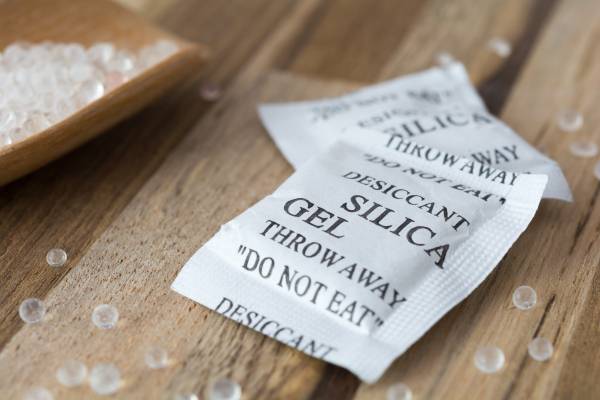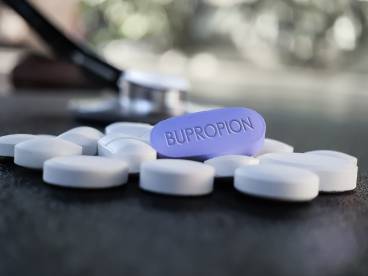Connect with a verified veterinarian in minutes. Licensed vets are available 24/7 to answer your questions. No need to worry about your furry family member.
After buying certain products, you may have noticed that they contained a small packet. These packets look pretty innocuous, but they may include some text that reads “Do Not Eat.” What’s in these small packets? Silica gel! These small packets are in many products, so it’s easy for your canine companion to find one and eat it. But what happens if a dog eats silica gel?
Has your dog eaten silica gel? Are you worried that the silica gel will make your dog sick? If so, you’ve come to the right place. We understand it can be scary when your dog eats something like this.
We’ve gathered information about silica gel and whether it can make a dog sick. Let’s get started!
What is Silica Gel?
Those small packets of silica gel can be found in some foods, clothing, electrical products, and more. They’re used to reduce humidity levels and absorb water. This keeps products from becoming damp and spoiling or damaged.
The silica in the packets is really more like porous sand than a gel. The silica gel usually looks like small, clear beads or crystals in the packet. The packets are made of cloth or paper.
While silica gel is safe when used as directed, what happens if a dog eats silica gel? Can silica gel make a dog sick?
Silica Gel & Dogs
Fortunately, the silica gel is not toxic to dogs. However, it can make a dog sick, especially if eaten in large amounts. In large amounts, it’s possible that the silica gel could create a blockage in the dog’s digestive system. This is a condition that can be life-threatening and cause death if left untreated.
It’s also possible the dog could have eaten the packet the silica gel came in. This can add to the problem of developing a blockage.

Review symptoms, medications & behavior to keep your pets healthy with a Vet Online in just minutes.
Ask a Vet Live NowSymptoms of Silica Gel Ingestion in Dogs
You may notice these symptoms if your dog has eaten silica gel:
- Drooling
- Vomiting
- Abdominal pain & swelling
- Diarrhea
- Constipation
- Lethargy
- Lack of appetite
If you notice these or other concerning symptoms in your dog, call the vet immediately. This is an emergency.
Treatment of Silica Gel Ingestion in Dogs
Treatment depends on the amount of silica gel your dog has eaten and your dog’s size. In some cases, the vet may induce vomiting. However, they may also need to order x-rays to see if the silica gel has created a blockage in your dog’s digestive system.
If the vet finds a blockage, they may need to perform surgery to remove the blockage and repair any damage it may have caused.
The prognosis is best for dogs that receive prompt medical attention after ingesting silica gel and silica gel packets. In the future, it’s best to keep all silica gel packets out of your dog’s reach. You’ll both be happier for it!
Connect with a verified veterinarian in minutes. Licensed vets are available 24/7 to answer your questions. No need to worry about your furry family member.

Julie
Julie is a graduate of the University of North Carolina, Wilmington, where she studied Animal science. Though contrary to the opinion of her parents she was meant to study pharmacy, but she was in love with animals especially cats. Julie currently works in an animal research institute (NGO) in California and loves spending quality time with her little cat. She has the passion for making research about animals, how they survive, their way of life among others and publishes it. Julie is also happily married with two kids.
Review symptoms, medications & behavior to keep your pets healthy with a Vet Online in just minutes.
Ask a Vet Live Now





